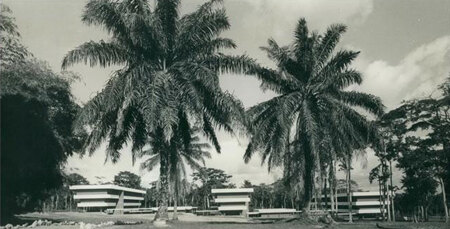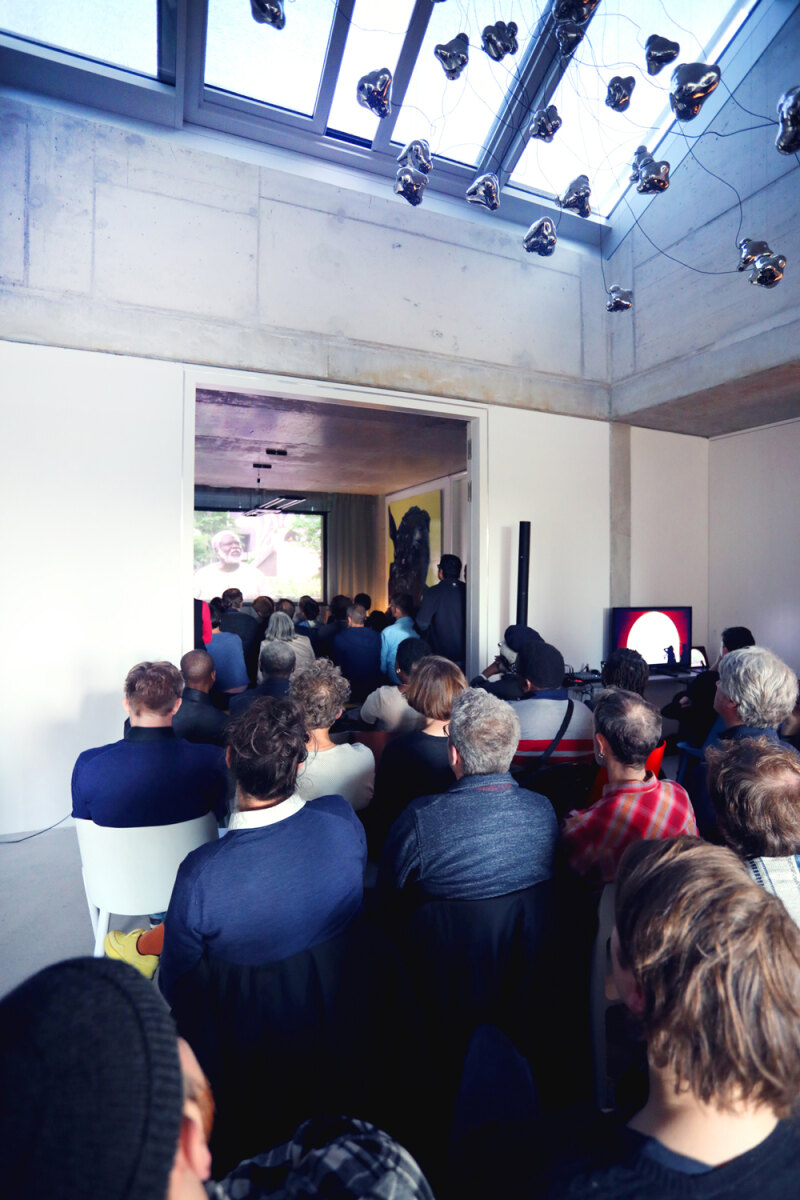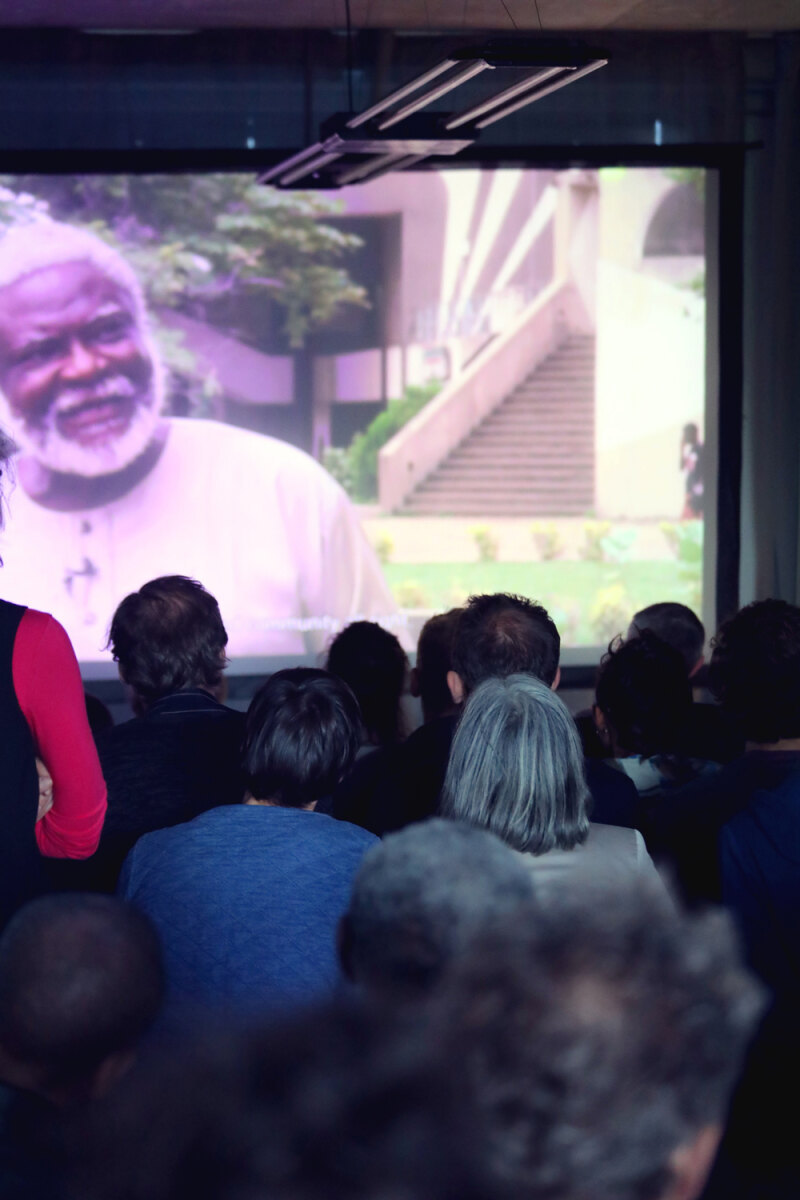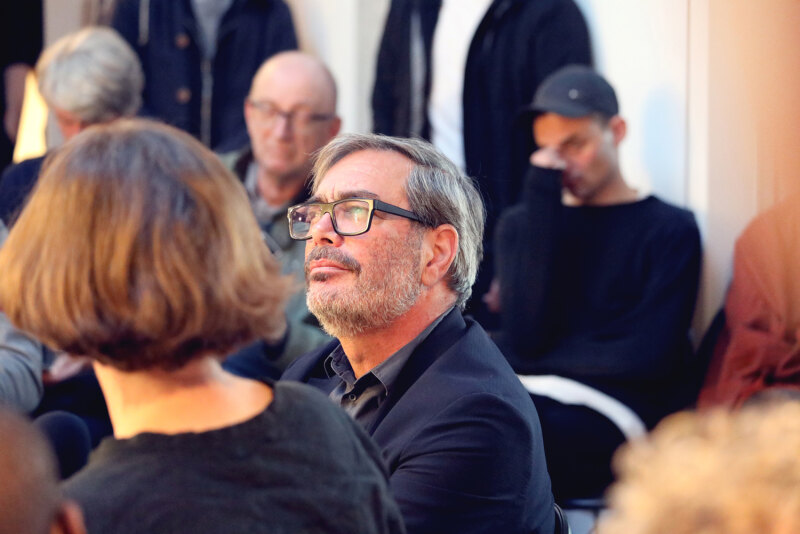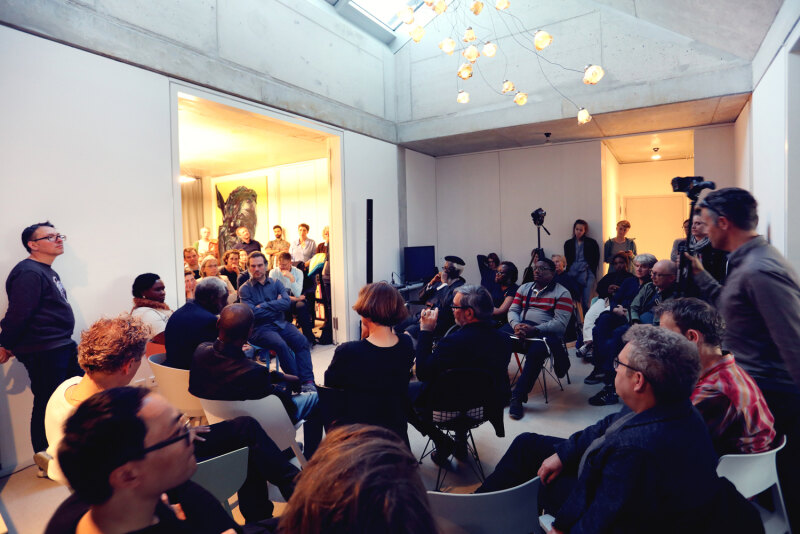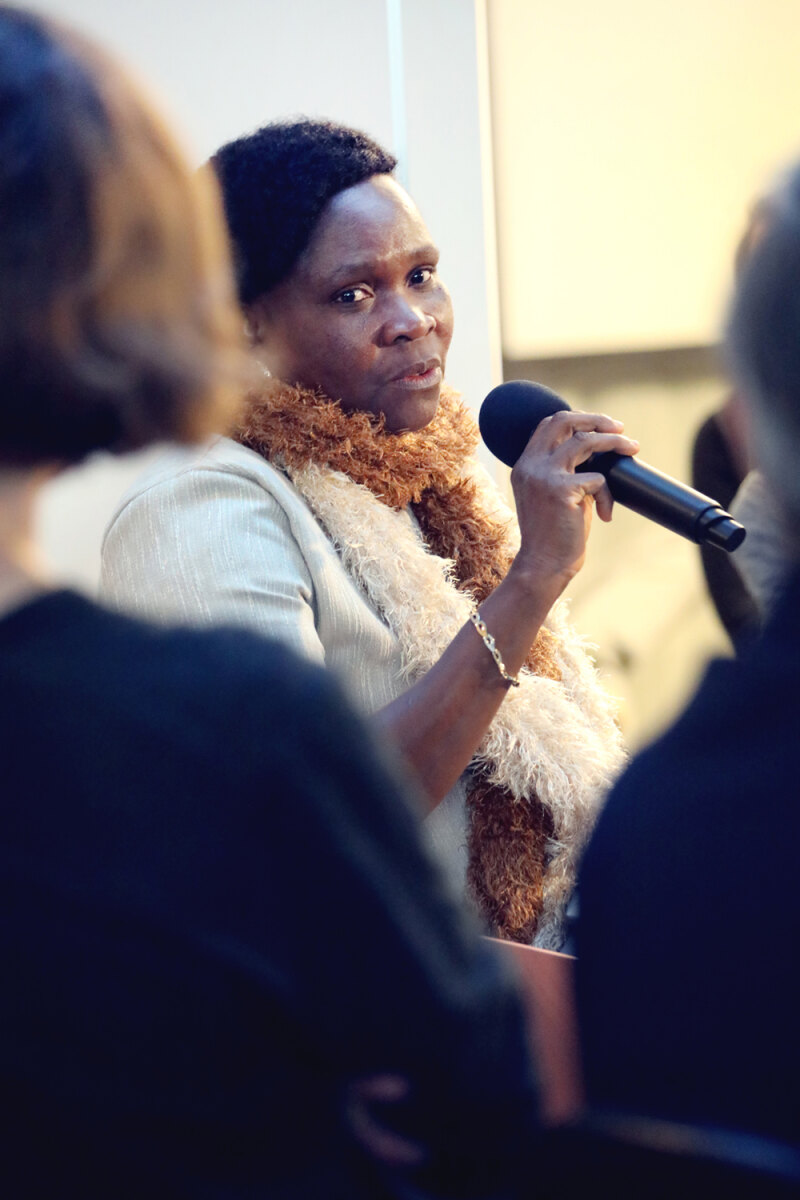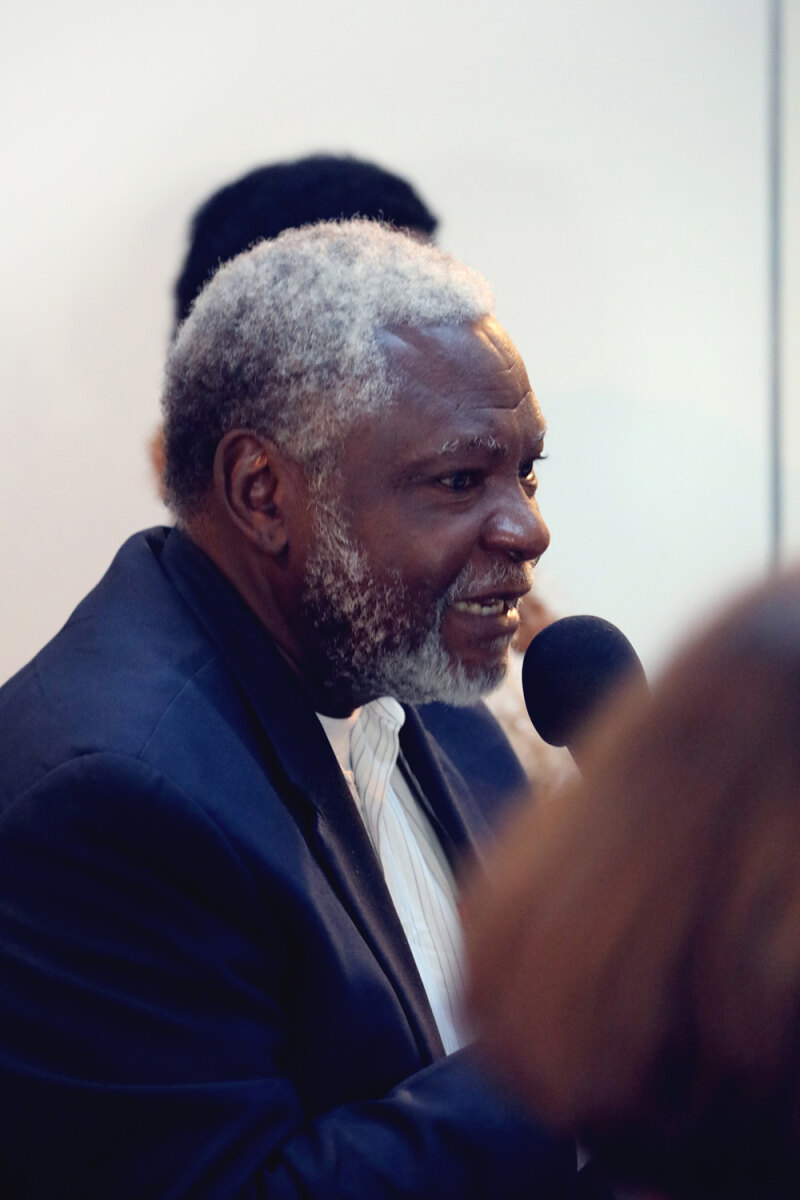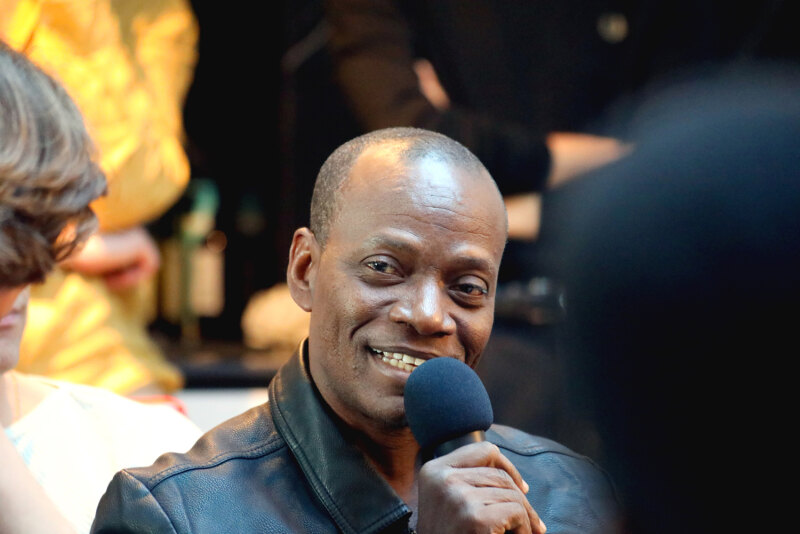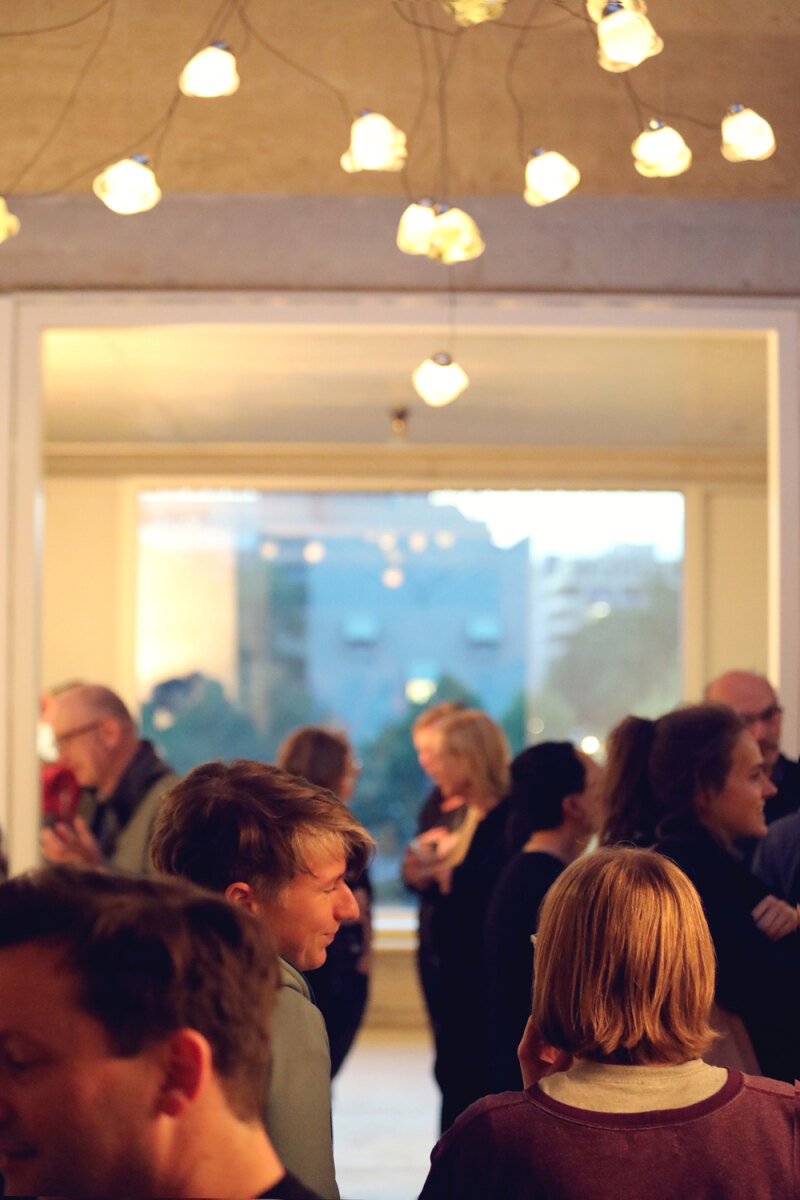Mit
Zvi Efrat (Architekt, Tel Aviv)
Bayo Amole (Prof. für Architektur, Obafemi Awolowo University, Ile-Ife, Nigeria)
Mujidat Olubola Babalola, (Prof. und Dean, Faculty of Environmental Design and Management, Obafemi Awolowo University, Ile-Ife, Nigeria)
Babatunde E. Jaiyeoba (Prof. für Architektur, Obafemi Awolowo University, Ile-Ife)
Marion von Osten (Künstlerische Leitung bauhaus imaginista, Berlin)
Christian Hiller (Redakteur ARCH+, Berlin)
Die Veranstaltung findet auf Englisch statt / The talk will be held in English, please scroll down for further informations.
Die Platzanzahl ist beschränkt, bitte registrieren Sie sich unter / As places are limited, registration is required: features[at]archplus.net
In der nigerianischen Stadt Ile-Ife, 200 Kilometer nord-östlich und mindestens vier Stunden Autofahrt von Lagos entfernt, steht ein weiträumiger, architektonisch einmaliger Universitätskomplex im Stil der tropischen Moderne, der von Arieh Sharon ab Beginn der 1960er-Jahre geplant und umgesetzt wurde. Sharon war ab 1926 Student am Bauhaus unter anderem in der von Hannes Meyer initiierten Bauabteilung, 1931 floh er vor den Nationalsozialisten nach Palästina und wurde dort zum zentralen Stadtplaner Israels. Welche Rolle und Programmatik seine Architekturen und Siedlungsprojekte im Prozess des Aufbaus des neuen Staates Israel spielten, untersucht der Architekt Zvi Efrat ausführlich und kritisch in seinem Buch The Object of Zionism. The Architecture of Israel (Spector Books, 2018).
Aber wie kommt es, dass Arieh Sharon beauftragt wurde, eine Universität in Nigeria als Ausdruck der dort 1960 erreichten Unabhängigkeit zu errichten? Welches Interesse hatte Israel, sich am Prozess des „Nation Buildings“ in Nigeria einzubringen, und welche Rolle kam dem Projekt in der Dekolonisierung von den Briten zu? Funktioniert die Universität im heutigen Nigeria – einem Land, das von massiver Armut und Gewalt, Umweltzerstörung und Ausbeutung geprägt ist, und wie kann dieses einmalige architektonische Kulturerbe der tropischen, postkolonialen Moderne auf Dauer geschützt und erhalten bleiben?
Um diese und weitere Fragen zu bearbeiten, initiierte bauhaus imaginista unter anderem ein Filmprojekt von Zvi Efrat, eine Forschungsreise an die Obafemi Awolowo University in Ile-Ife und das Symposium Decolonizing the Campus an der University of Lagos mit Unterstützung des dortigen Goethe-Instituts.
Die Erfahrungen und Erkenntnisse dieser Projekte sollen am 10. Mai 2019 in einem ARCH+ Salon in Berlin mit Zvi Efrat, Marion von Osten und den an der Obafemi Awolowo Universität unterrichtenden Professor*innen Mujidat Olubola Babalola, Bayo Amole und Babatunde E. Jaiyeoba diskutiert werden. Als Hintergrund dienen das neu erschienene Buch von Zvi Efrat und die für bauhaus imaginista erstellte Filmarbeit Scenes from the Most Beautiful Campus in Africa – A Film About the Ife Campus.
Neben Gesprächen über der Historie und Gegenwart des Campus zeigt der Film (25 Minuten) den aktuellen Zustand des Gebäudeensembles, in dem die visionären klimatischen, kulturspezifischen und sozialräumlichen Qualitäten der Universität bis heute erlebbar sind und von den Lehrenden und Studierenden genutzt und angeeignet werden.
Die Veranstaltung ist eine Kooperation von ARCH+ Zeitschrift für Architektur und Urbanismus, Spector Books und bauhaus imaginista. bauhaus imaginista ist eine Zusammenarbeit zwischen der Bauhaus Kooperation Berlin Dessau Weimar, dem Goethe-Institut und dem Haus der Kulturen der Welt (HKW).
+ + +
Durch die Teilnahme an der Veranstaltung erklären ich mich / wir uns mit der möglichen Veröffentlichung von Bild- und/oder Filmmaterial einverstanden, auf dem wir zu sehen sind.
+ + +
bauhaus imaginista
Ausstellung & Konferenzen im Haus der Kulturen der Welt
Täglich (außer Di) 11–19h. Bis 10. Juni 2019
Konferenz A New School: 11.–12. Mai 2019
bauhaus imaginista: online journal
+ + +
ARCH+ Salon: The Most Beautiful Campus in Africa
10 MAY 2019, 7 PM
at Friedrichstraße 23A, 10969 Berlin
organized in collaboration with bauhaus imaginista
The talk will be held in English. Places are limited: please register here
Screening of Scenes from the Most Beautiful Campus in Africa – A Film About the Ife Campus by Zvi Efrat and presentation of his book The Object of Zionism, followed by a discussion with the experts:
With Zvi Efrat (architect, Tel Aviv)
, Bayo Amole (Professor of Architecture, Obafemi Awolowo University, Ile-Ife),
Mujidat Olubola Babalola (Professor and Dean, Faculty of Environmental Design and Management, Obafemi Awolowo University, Ile-Ife),
Babatunde E. Jaiyeoba (Professor of Architecture, Obafemi Awolowo University, Ile-Ife)
, Marion von Osten (curator bauhaus imaginista, Berlin), Christian Hiller (editor ARCH+, Berlin)
In the Nigerian town of Ile-Ife, 200 kilometers north-east and a minimum four-hour drive from Lagos, lies a spacious, architecturally unique university complex built in the tropical modernist style—planned and implemented in the early 1960s by the Israeli architect Arieh Sharon. Sharon completed his studies at Bauhaus Dessau in 1931, returning to Palestine where he was subsequently appointed head of the State Planning Authority following Israeli independence. In his book, The Object of Zionism: The Architecture of Israel (Spector Books 2018), the architect Zvi Efrat presents a critical examination of the role of Sharon’s architecture and settlement projects in the process of building an Israeli national identity in the early years of the state.
But how is it that Arieh Sharon was commissioned to establish a university in Nigeria as an expression of Nigeria’s own independence from the United Kingdom in 1960? What was Israel’s interest in participating in the process of nation-building in Nigeria and what role did the project play in British decolonization? And how does the university function in contemporary Nigeria—a country marked by endemic poverty and violence, environmental degradation and profligate resource exploitation—and how, in general, can the country’s unique architectural heritage of tropical post-colonial modernity be protected and preserved for posterity?
To address these and other questions, bauhaus imaginista initiated a film project by Zvi Efrat, conducted a research trip to Obafemi Awolowo University in Ile-Ife, and held the symposium Decolonizing the Campus at the University of Lagos, with the support of the Goethe-Institut Nigeria.
The experiences and findings of these projects will be discussed on 10 May 2019 at an ARCH+ Salon in Berlin featuring Zvi Efrat and Marion von Osten, as well as Mujidat Olubola Babalola, Bayo Amole and Babatunde E. Jaiyeoba—all professors at Obafemi Awolowo University.
The newly published book by Zvi Efrat and his film (25 minutes) for bauhaus imaginista will serve as background to this discussion. In addition to covering the history of the campus, the film shows the current state of its built ensemble, in which the visionary combination of climate-responsive, culturally-specific and socio-spatial architecture and land-use planning are still very much in evidence today, and continue to be used and appropriated by teachers and students alike.
Read more on other acitivities on www.bauhaus-imaginista.org
+ + +
By attending this event, you agree to be photographed and/or filmed and give permission to use your likeness in promotional and/or marketing materials.
+ + +
The Object of Zionism. The Architecture of Israel
The Object of Zionism: The Architecture of Israel is a critical study by Zvi Efrat of Zionist spatial planning and the architectural fabrication of the State of Israel from the early decades of the twentieth century to the 1960s and 1970s. It scrutinizes Israel as a singular modernist project—unprecedented in its relative scope and rates of growth, its political and ethical circumstances, and its hyper-production of spatial and structural experiments. This project entailed the molding of a new terrain, the construction of dozens of new towns and hundreds of new rural settlements, and the appropriation of post-war architectural trends, especially Brutalism and Structuralism, as signifiers of national vigour and cultural ingenuity. Contrary to common belief, the State of Israel was not born of emergency routine or speculative ventures, but rather with the objective of designing an instantaneous model state.
Scenes fom the Most Beautiful Campus in Africa (25 min)
This documentary is part of the exhibition bauhaus imaginista. In his film, Scenes fom the Most Beautiful Campus in Africa, the architect and architectural historian Zvi Efrat documents and explores the planning and design of the Ife University campus (now known as Obafemi Awolowo University) in Ni- geria, by the Israeli architect Arieh Sharon. Founded in 1960 in protest against British colonial education policy, Ife was the first post-independence university in Nigeria to possess an architecture faculty. Arieh Sharon trained at the Bauhaus school in Dessau and worked at the architectural office of Hannes Meyer in Berlin for the design of the Trade Union School in Bernau before he returned to Palestine in 1931. There, he became the leading architect of the local Trade Union Federation and in 1948 he was appointed head of Is- rael’s State Planning Authority. His involvement with the Ife campus spanned about two and a half decades, from 1960 until the mid-1980s, and was part of Israel’s development aid program in Sub-Saharan Africa.
Sharon’s adaptation of modernist-brutalist idioms to the local Yoruba culture, and his radical interpretation of British tropical architecture, created a rare ensemble of climatically sustainable open structures and flowing spaces; in effect “architecture without doors,” operating as a vibrant social and academic environment up to the present time.
In relation to contemporary architectural discourse and practice, the Ife campus can be appreciated as a moderately intricate model of “passive architecture” and “soft spaces,” one that does not rely principally on external energy and me- chanical systems and which blurs the habitual boundaries between interior and exterior, formal and informal spaces.
